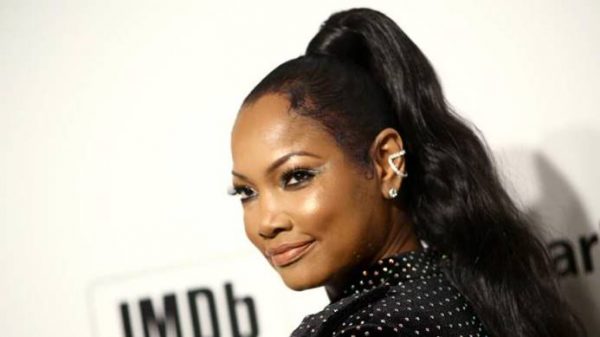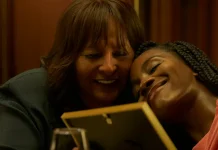*Faraday Okoro’s “Nigerian Prince” is the first winner of AT&T’s Untold Stories program, a “Shark Tank”-like competition in which an underrepresented filmmaker bags a $1 million grant to produce a film. But the money comes with the added pressure of having to premiere the film 12 months later at the Tribeca Film Festival.
Okoro, a 31-year old Nigerian-American – who studied under Spike Lee at NYU’s graduate film school – premiered “Nigerian Prince” at the 2018 festival. He teamed with actor Antonio Bell (“Greenleaf”) to help tell his semi-autobiographical story about Eze (Bell), a Nigerian-American teenager sent by his mother to Nigeria, where he teams up with his cousin Pius to scam foreigners in an effort to raise money for a return ticket back to the States
Born and raised in Inglewood, California, Bell was an EMT for nearly a decade prior to committing to acting. When EUR/Electronic Urban Report caught up with the young star, he explained that working as an EMT makes you fully appreciate the little things in life that many of us take for granted.
“You get to appreciate it because everybody’s been through a car accident or you’ve lost somebody or you’ve lost a job or you had a bad day. But to be reminded of that every single day is helpful in just like, appreciating the stuff that you do have,” he explained.
“Even with “Nigerian Prince,” being able to film in Nigeria and getting to see the problems that people go through and the way people live, and some people live off $50 a day and it’s overpopulated and seeing what homelessness looks like in another country. It really takes the issues that we have here in America and it really puts them into perspective and shows me how comfortable life really is for us and it’s not like that for other people around the world. We have our issues too but it still pales in comparison to a lot of places.
Check out the rest of our Q&A with Mr. Bell below.
OTHER NEWS YOU MIGHT HAVE MISSED: Bi-racial Descendant of ‘Three Stooges’ star Accuses Viacom of Covering Up Brad Grey Rape

In what ways does having the experience of an EMT influence how you manage your acting career?
Antonio: Working as an EMT is the epitome of having to live in the moment. You don’t really know what’s going to happen. You kinda have to go with the flow and take the punches as they come. So I feel like, as it pertains to acting, it’s a lot of the same. For example, I had three auditions I had to take this morning that I didn’t know I had last night. Things are always changing and moving and evolving so I know that’s really helped me to stay on my toes and go with the flow of life.
Do you often tap into these real-life traumatic moments to help you fully occupy the headspace of a character?
Antonio: It helps. I feel like as actors we’re working with whatever our color palette is, and the best way to work is from experience. And because of my work as an EMT, I have a lot of experience dealing with different types of people. I’ve dealt with people that suffer from debilitating mental health issues. I’ve dealt with people experiencing trauma first hand, whether it be a kid who was hit by a car, or gunshot wounds, a lot of this stuff comes up in scripts. So for me, I can draw on it. I really have responses to that stuff in real-time. That’s material that a lot of people don’t have to work from because most people haven’t been an EMT or firefighter or a policeman — who actually got to see the stuff in real life. There’s also a negative side to it too because I’m so used to covering up emotion or how I think or feel at the time because there’s work to do, sometimes that inhibits me too. So it’s kind of a double-edged sword.
In what ways are acting and working as an EMT similar?
Antonio: They are similar in the sense of like, you have to take the moments. When you’re doing work like that, you don’t know what you’re going to expect, which is intimidating but also liberating at the same time. Those two things can co-exist because if you go to work as an EMT, you don’t know what you’re going to deal with that day. But you have all of these resources and tools available to you in the ambulance or the hospital you’re working at, to help you figure out what the problem is and help you fix it. Same thing as an actor. There’s so many techniques we learn to equip us to handle those moments as they come. But you’re not going to know what you need until that moment hits you. I don’t know how another actor is going to deliver their lines or I don’t know how the director is going to block it. I don’t even know what the place looks like before I get there, whatever the case is, you don’t know. So you have to build that stuff in your imagination but you also have to leave it flexible for things to happen on the day. Same thing applies as an EMT. When I walk into a house, I don’t know what I’m going to expect. It’s really about being adaptable.
What about Eze compelled you to want to explore the world of this character?
Antonio: A lot of what he’s dealing with and his journey in this film is kind of an identity crisis. He doesn’t understand where he’s from and he doesn’t understand that his history extends past America. And I feel like that’s something that a lot of us go through as young African-Americans. Here in America, we’re taught in school that our history starts in America and that’s not true. We had history before this. We have so many stories and so much culture that’s in us. When I was in Nigeria, I got to see men that look my father talk to each other and tell stories and how animated they are and how they cleverly craft these stories and laugh and joke and all these things. It reminded me of the men I know here in America. The way we dance. The way we create and work together. Over there, you really see the reason why we do the things that we do culturally. It’s still in us and it was never broken because of our terrible history. My character sees different variations of that stuff through the film. So that for me was a very interesting story.
It’s a kid I can relate to because a lot of the identity issues that he has coming up, I had those when I was 17-years-old. I didn’t want to identify as African-American because, in my mind, there are real people that came from West Africa or East Africa or wherever— that live in America that are African-American. So how can you bunch me up with them and they’re actually from Africa? I’m from Inglewood, California. But it wasn’t until I got older and did some research and learned things on my own that I realized, I actually am still African-American. My Nationality is American but I’m of African descent. I notice that there’s a big sense of pride among people from West Africa. People are really proud to be from Nigeria or Ghana or wherever, regardless of the conditions. I noticed that also with island-pride. People are proud to be from the islands — Bahamas, Jamaica. In America, we’re just proud to be black. And we’re also proud of whatever our subculture is, whether you’re a foreigner or from New York.
How would you describe the dynamic between Eze and his scammer cousin Pius?
Antonio: They’re different but they’re the same. I think they’re both kinda of running away from their environment. They’re both trying to find a different reality. They’re both trying to find a different place and purpose and their identity. So I feel like they’re both similar in that way. They’re both attracted to each other in the sense of like, Pius is the only child, Eze’s the only child, so they’re the brothers that they never really had. They’re both raised by strong women and they’re kind of discovering and finding that brotherhood with each other and going on a journey together. But then they’re different because Eze’s a little more passive and reserved and little less experienced in street smarts. Pius is very much savvy and understands that other world and I think that entices Eze but that’s not necessarily how Eze is.
What does the film say about the relationships between men in general and the ways in which they bond with each other?
Antonio: My takeaway is, if men don’t have an example in the house, they find one. For Eze and Pius, they both have interrupted relationships with their fathers, so they find each other. I remember growing up, because I didn’t have that relationship with my father, I sought out that relationship with preachers in the church or some of the guys that taught Bible study or coaches that I had growing up. So I feel like it’s one of those intrinsic things that we all look for, whether we realize it or not. It may not necessarily be a man but that masculine or feminine nature.
How does the film speak to the youth of today and the issues they are most impacted by?
Antonio: For the youth growing up, I feel like a lot of them have questions about their identity as it relates to the world. As it relates to America, Africa and what it means to be African-American. I feel like that definition is very loose. I feel like we’re not properly educated as to what our identity is in the global system. That’s why I love this film. Being able to go to Nigeria and walk and talk to people who are from there and all they know is Nigeria — to have that experience, really changed my life. If you’re black in any country other than Africa, you have to go to Africa. So I’m happy to have been able to do it in the way that I did.
I’m hoping that the film is able to help answer questions that people have about their racial identity or I hope it makes them curious and makes them want to discover and learn more and start to really explore what it means to be African-American, for them. The definition could be different for everybody — ‘cause everybody is telling their story. You know when the teacher doesn’t feel like being a teacher that day and puts a movie on in class, I hope this is the movie they put on and that kids are able to see this film and have this conversation.
We Publish News 24/7. Don’t Miss A Story. Click HERE to SUBSCRIBE to Our Newsletter Now!







